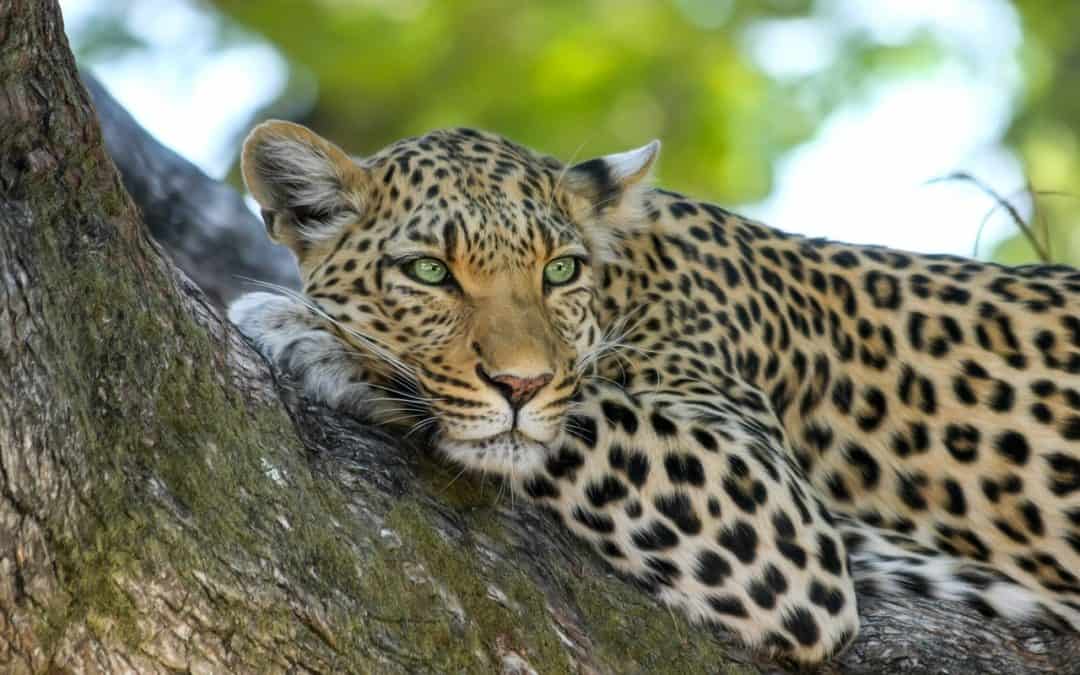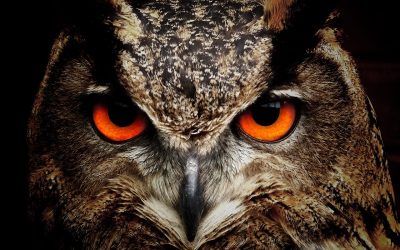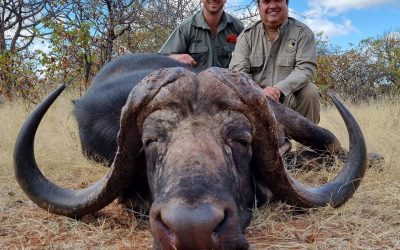So, you’re planning a hunting trip to Africa and you want to make sure you’re using the best methods for a successful expedition, right? Well, look no further because we’ve got you covered. In this article, we’ll be exploring the top strategies and techniques for hunting in Africa, whether you’re after big game or smaller prey. From spot and stalk to hunting over bait, we’ll break down the pros and cons of each method, helping you choose the perfect approach to maximize your chances of bringing home a trophy. So, grab your gear and let’s dive right in!
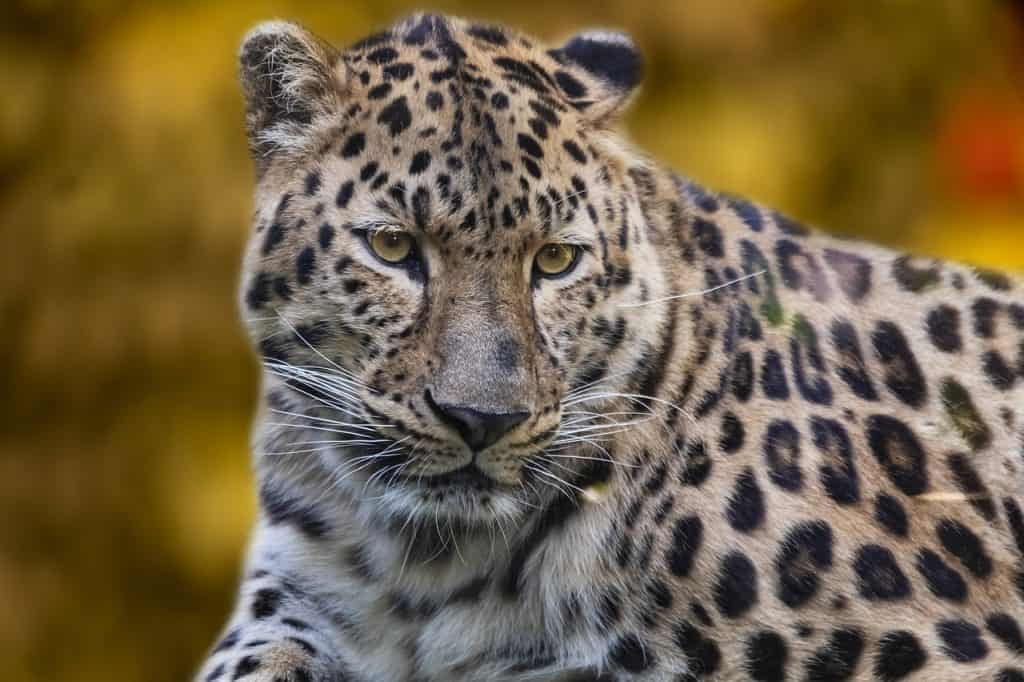
Rifle Hunting
Rifle hunting is a popular method for hunting in Africa due to its long-range capabilities and accuracy. When it comes to equipment and gear, it’s important to invest in high-quality items that are specifically designed for hunting. A reliable bolt-action rifle chambered in a suitable caliber, such as .30-06 or .300 Win Mag, is a good choice for African game. Optics, such as a scope, are essential for precise aiming. It’s crucial to choose a rifle that you feel comfortable and confident shooting.
Choosing the right rifle for African hunting depends on several factors, including the type of game you plan to hunt and the terrain you’ll be exploring. Big game hunting typically requires a larger caliber rifle for effective shot placement. However, if you plan to hunt smaller species or in thick vegetation, a lighter and more maneuverable rifle might be more suitable. Consider factors such as weight, recoil, and ammunition availability when making your decision.
Shot placement is critical in rifle hunting. For clean and humane kills, it’s essential to aim for vital organs such as the heart and lungs. Practice your marksmanship skills before heading out on a hunt to ensure accurate shot placement. Remember to take ethical shots within your effective shooting range and never take risky shots that may wound an animal unnecessarily.
Bow Hunting
Bow hunting offers a unique and challenging experience in Africa. When it comes to equipment and gear, a compound bow is a popular choice among bow hunters for its accuracy and adjustable draw weight. It’s important to choose a bow that suits your strength and shooting ability. Additionally, investing in quality arrows, broadheads, and a reliable release aid is crucial for successful bow hunting.
Choosing the right bow for African hunting requires considering factors such as draw weight, arrow speed, and the type of game you plan to pursue. African game animals are known for their toughness, so a higher draw weight bow will provide the necessary kinetic energy for clean kills. However, it’s essential to choose a bow that you can comfortably handle and shoot accurately, especially when hunting in unfamiliar terrain and under challenging conditions.
Shot placement is even more critical in bow hunting than in rifle hunting. Since the effective range of a bow is much shorter, ensuring precise shot placement is essential for a quick and ethical kill. Aim for vital organs such as the heart and lungs, and practice shooting from various distances to improve your accuracy. Remember to avoid taking shots that are beyond your effective range to avoid wounding an animal without a high likelihood of recovery.
Tracking and Stalking
Tracking and stalking are essential skills for any serious hunter in Africa. Tips for tracking include studying animal tracks and sign, understanding their behavior and movement patterns, and paying attention to the surrounding environment. Familiarize yourself with the tracks and signs of the game species you’re pursuing to increase your chances of success. Learning to interpret the subtle clues left behind, such as broken branches or scat, can help you track the animal more efficiently.
Stealth and concealment are key when it comes to successful tracking and stalking. Avoid wearing brightly colored clothing that may attract the attention of game animals. Instead, choose camouflage or earth-toned clothing that blends well with the surroundings. Move slowly and quietly, utilizing natural cover and shadows to remain hidden. Take advantage of wind direction to prevent animals from detecting your scent.
Approaching game animals requires patience and careful observation. Keep an eye out for any movement or sound that might indicate the presence of your target. Move slowly and deliberately, making sure to stay downwind of the animal to avoid detection. Avoid sudden movements and be prepared to freeze in place if the animal looks in your direction. With practice and experience, you’ll become more adept at getting close to your target undetected.
Spot and Stalk
Spot and stalk hunting involves scouting and observing game from a distance before making a move to close the gap and get within shooting range. Scouting and observation are crucial for success in this hunting method. Use binoculars or a spotting scope to scan the landscape for any sign of game, such as movement or feeding patterns. Look for vantage points that provide a good view of the surrounding area, such as hills or elevated areas.
Identifying target animals is essential in spot and stalk hunting. Take the time to learn the physical characteristics and behavior of the game species you’re pursuing. Look for specific features, such as antler racks, distinctive fur patterns, or other unique traits that can help you differentiate your target from other animals. Practice identifying animals quickly and accurately to avoid mistaken targets.
Stalking techniques are crucial for getting within shooting range of game animals without being detected. Move slowly and deliberately, sticking to cover and using terrain features to your advantage. Avoid walking in direct line-of-sight with the animal and instead use natural obstacles, such as bushes or trees, to break up your outline. Take advantage of wind direction to mask your scent and minimize the chances of being detected.
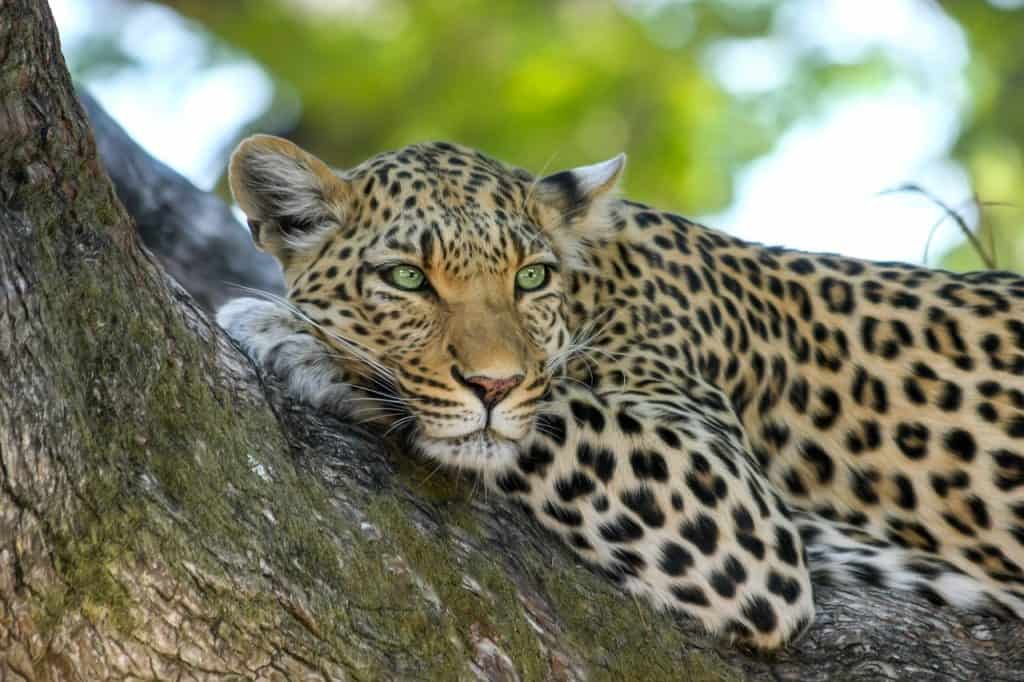
Driven Hunting
Organizing a driven hunt involves coordinating with a team of hunters and beaters to drive game animals towards waiting hunters. Safety precautions are of utmost importance when it comes to driven hunting. Make sure everyone involved is familiar with the hunting area and understands their roles and responsibilities. Clearly communicate safety protocols and ensure that all firearms are handled safely and responsibly.
Coordinating with a team is essential for a successful driven hunt. Assign roles to each team member, such as beaters, blockers, and shooters, to ensure smooth coordination. Establish communication signals or devices, such as whistles or radios, to keep everyone informed and coordinated. It’s crucial to have a plan in place for handling any wounded animals and ensuring their ethical and humane dispatch.
Hunting with Hounds
Training and working with dogs is a traditional hunting method that can be highly effective. Hound breeds are well-suited for African hunting due to their scenting abilities and endurance. Various hound breeds, such as Rhodesian Ridgebacks or Pharaoh Hounds, are commonly used for tracking and pursuing game animals in Africa. Train your dogs to follow specific scents and obey commands to increase their effectiveness in the field.
Choosing the right hound breed for African hunting depends on the game species you plan to pursue and the terrain you’ll be hunting in. Consider factors such as their instinct for tracking, stamina, and adaptability to different environments. Work with experienced breeders or trainers who can provide guidance on selecting the most suitable hound breed for your hunting needs.
Techniques for pursuing game with hounds involve releasing the dogs on a scent trail and following them as they track the animal. The dogs’ keen sense of smell will lead you to the game, while your role is to keep up and be prepared to take a shot when the opportunity arises. It’s crucial to communicate effectively with your dogs and trust their instincts to ensure a successful outcome.
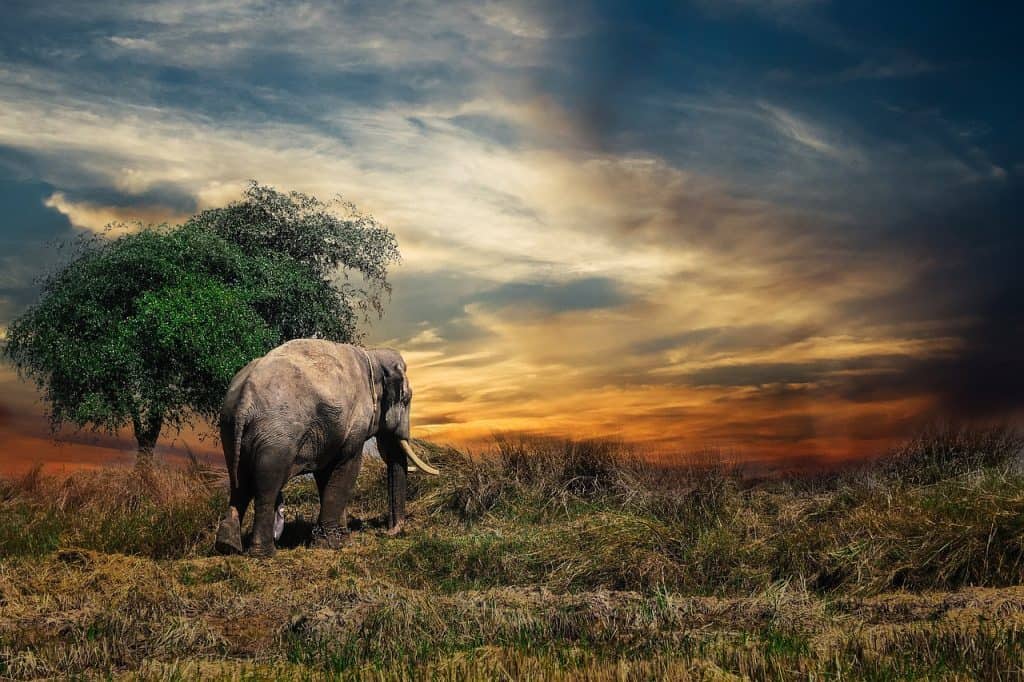
Night Hunting
Night hunting can provide a unique and thrilling experience for hunters. When it comes to equipment and gear, specialized gear for night hunting is necessary. Invest in a reliable and high-quality spotlight that provides sufficient illumination without spooking the game. Additionally, consider using night vision technology to enhance your ability to see in the dark. It’s important to adhere to local regulations and ensure that night hunting is legal in your hunting area.
Spotlighting techniques involve scanning the darkness with a spotlight to locate game animals’ eyeshine. Many African animals have a reflective layer behind their eyes known as the tapetum lucidum, which reflects light and gives their eyes a bright shine when illuminated. By shining the spotlight in the direction of the eyeshine, you can locate and identify potential targets.
Night vision technology can greatly enhance your ability to see in the dark. Devices such as night vision scopes or goggles amplify the available light and allow you to see more clearly. This can be particularly useful for identifying game animals that may not be visible through traditional spotlighting techniques. Familiarize yourself with the operation and limitations of night vision equipment before heading out for a night hunt.
Baiting and Ambushing
Identifying baiting locations is crucial for successful hunting. Determine the natural feeding patterns and preferences of your target game species. Look for areas with abundant food sources or watering holes that attract animals. It’s important to set up bait stations in a legal and ethical manner, adhering to local regulations and ensuring the minimal impact on the ecosystem.
Creating effective ambush setups involves carefully choosing the location and positioning yourself in a way that maximizes your chances of success. Study the terrain and vegetation to find natural or artificial features that provide cover and concealment. Set up in a way that allows you to remain hidden while providing a clear line of sight to your intended shooting area. Pay attention to wind direction to prevent animals from detecting your scent.
Patience and endurance are essential when it comes to baiting and ambushing. It may take time for animals to discover and approach the bait station, so be prepared to wait for extended periods. Maintain a high level of alertness and be ready to react quickly when an opportunity presents itself. Remember to practice ethical hunting practices and ensure clean and humane kills.
Hunting from a Blind
Setting up a hunting blind is an effective method for hunting in Africa. Choose a blind that suits your needs, whether it’s a portable ground blind or an elevated blind. When selecting an ideal location, consider factors such as game movement patterns, water sources, and natural cover. It’s important to ensure that the blind provides adequate concealment and minimizes noise and movement.
Camouflage techniques are crucial when hunting from a blind. Make sure your blind blends well with the surrounding vegetation and terrain to avoid detection by game animals. Use natural materials, such as branches or foliage, to further camouflage the blind. Ensure that your personal clothing and gear also match the environment to prevent any unnatural visual cues that might alert game animals.
Hunting from a blind requires patience and the ability to sit still for extended periods. Avoid excessive movement and noise that could alert nearby animals. Maintain a high level of vigilance and be ready to shoot when the opportunity presents itself. It’s crucial to practice shooting from a seated position to ensure accuracy and precision when the moment of truth arrives.
Hunting Safaris and Professional Guides
Finding reputable safari operators is essential when planning a hunting safari in Africa. Research and gather recommendations from experienced hunters or reputable sources to ensure that the operator you choose abides by ethical hunting practices, follows local regulations, and prioritizes conservation. Look for operators with a proven track record and positive customer reviews.
Benefits of hiring a professional guide for your African hunting safari are numerous. Experienced guides possess extensive knowledge of the local fauna, hunting areas, and hunting techniques. They can greatly enhance your chances of success while ensuring your safety throughout the hunt. Guides also provide valuable insights into the local culture and customs, making your hunting experience in Africa more immersive and memorable.
Understanding local laws and regulations is crucial before embarking on a hunting safari in Africa. Each country has its own specific rules and requirements regarding hunting seasons, permits, quotas, and protected species. Familiarize yourself with the local laws and any restrictions or limitations that may apply to your hunting activities. Hire a reputable guide or consult with local authorities to ensure compliance and ethical hunting practices.
In conclusion, hunting in Africa offers a diverse range of methods and techniques for hunters to explore. Whether you choose rifle hunting, bow hunting, tracking and stalking, spot and stalk, driven hunting, hunting with hounds, night hunting, baiting and ambushing, hunting from a blind, or embark on a hunting safari with a professional guide, understanding the equipment, gear, and techniques specific to each method is crucial for a successful and ethical hunting experience in Africa.

